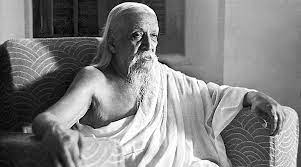Sri Aurobindo Ghosh 150th Birth Anniversary:

Prime Minister Narendra Modi will participate in a programme commemorating Sri Aurobindo’s 150th birth anniversary on December 13, 2022. During the Programme PM will release a commemorative coin and postal stamp in honour of Sri Aurobindo.
- Sri Aurobindo Ghosh Born to surgeon Krishna Dhan Ghose and Swarnalata Devi in Calcutta on August 15, 1872.
- He passed Indian Civil Service Examination in 1890 but failed in the horsemanship test due to which he could not enter the service.
- In 1893, he accepted an appointment in the Baroda state service.
- He became a leading figure in the freedom movement and used to write fearless articles for the English newspaper Bande Mataram.
- He also contributed articles to the Bengali weekly Yugantar.
- Later, he started the weekly English journal titled Dharma, in which he tried to convey the message of Swaraj or freedom from the British rule.
- He was one of the founders of the youth club Anushilan Samiti which protested against the atrocities of the British government.
- He was one of the leading protesters against the 1905 Partition of Bengal and called on the citizens to boycott British institutions and goods.
- He took part in the 1906 session of the Indian National Congress and was a member of the team which set four objectives-Swadeshi, Swaraj, education and boycott.
- He was charged in the Alipore Bomb Case (1906-1910) and was sentenced to jail.
- He spent one year in solitary confinement at the Alipore Central Jail in Calcutta.
- He decided to give up active politics after his stint in jail and devoted himself to spiritualism.
- In 1910, he left British India and found refuge in the French colony of Pondichéry (now called ‘Puducherry’) in southeastern India.
- He founded a community of spiritual seekers, which took shape as the Sri Aurobindo Ashram in 1926.
- He devoted himself for the rest of his life to the development of his “integral” yoga.
- The main objective of his teachings was to increase the level of consciousness of people and to aware people of their true selves.
- Aurobindo’s voluminous literary work comprises philosophical speculation, many treatises on yoga and integral yoga, poetry, plays, and other writings.




